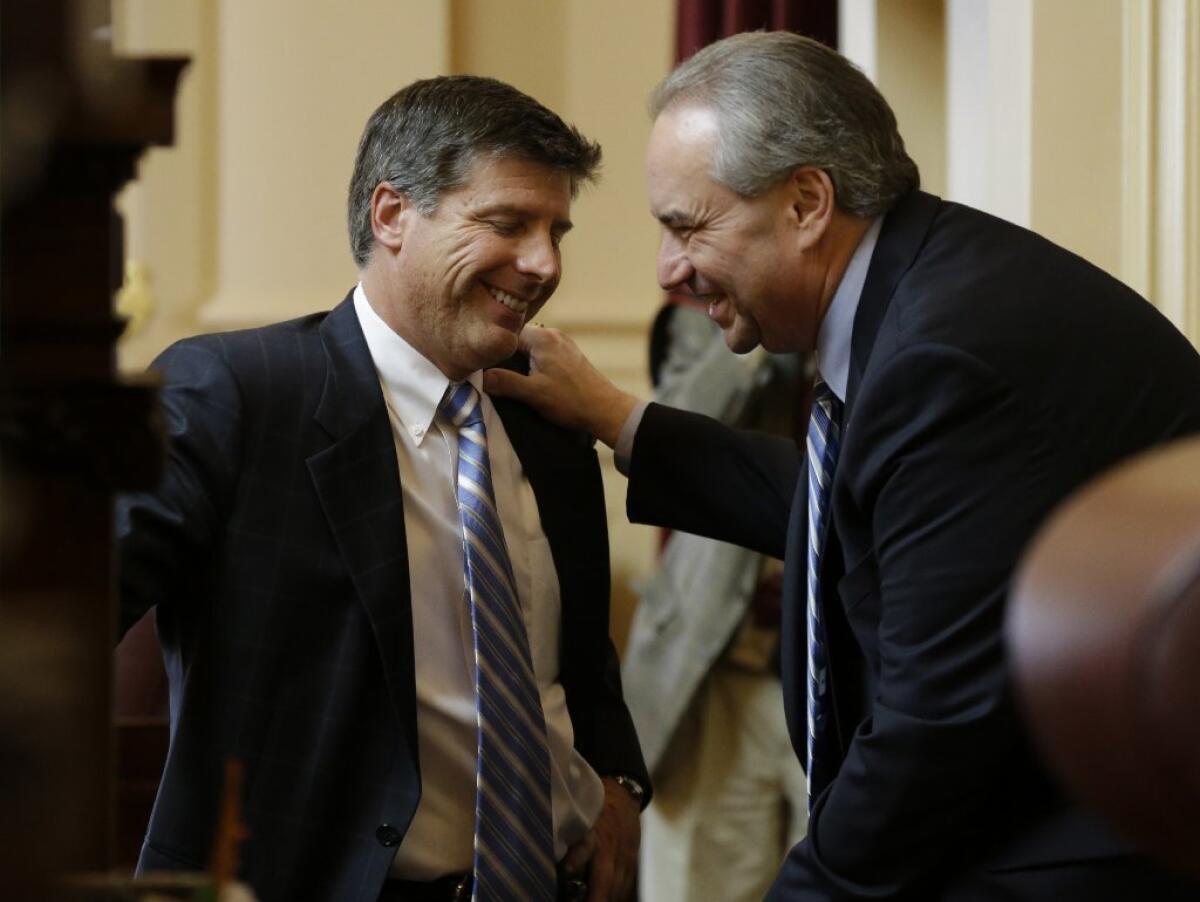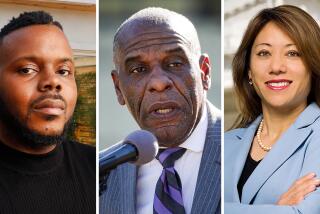Virginia governor’s race: a three-way brawl?

WASHINGTON -- In a move likely to shake up the top election contest of 2013, Bill Bolling said Thursday that he’s received an “amazing” amount of encouragement to run as an “independent Republican” for governor of Virginia, and he called it a race he could win.
A campaign by Bolling, the GOP lieutenant governor, would inject a new element of uncertainty into the Virginia race. Only two states are choosing governors this year. In New Jersey, Republican Gov. Chris Christie is strongly favored to gain reelection. But the Virginia governorship is very much up for grabs.
Public polls show Democrat Terry McAuliffe and Republican Ken Cuccinelli in a tie to succeed Republican Bob McDonnell, who is term-limited.
Both of the major candidates have significant vulnerabilities, however. McAuliffe, despite living in the Washington suburbs of Virginia for years, made his name in politics as a national fundraiser and party official. Many Virginia voters consider him a carpetbagger. McAuliffe was defeated badly in the 2009 Democratic primary for governor by a state senator who went on to lose in the fall by a lopsided margin.
Cuccinelli, the state attorney general, is one of the more aggressive conservative Republicans to emerge in Virginia -- if not nationally -- in recent years. Some in the GOP worry that he is too extreme to win a state that has trended Democratic in recent presidential elections.
An independent run by Bolling would marginally benefit McAuliffe’s chances to take the Virginia governorship away from the GOP, according to a statewide opinion survey released last week.
The Quinnipiac University poll showed McAuliffe with 34%, Cuccinelli with 31% and Bolling with 13%. In a two-way race, the contest was a 38%-38% dead heat. In the same survey, Bolling received a better job approval rating from Virginia voters -- 36% to 18% -- than Cuccinelli -- 41% to 32%.
Bolling withdrew from the GOP governor’s race last year after Virginia Republicans decided to nominate their candidate in a convention, instead of a primary -- an activist-heavy process that gave Cuccinelli a lopsided advantage.
Since then, Bolling has been moving to the center -- he recently came out in favor of expanding Medicaid in Virginia under President Obama’s healthcare law -- and indicated he was strongly considering an independent candidacy.
In an email Thursday to supporters, the lieutenant governor described himself as a mainstream politician who could work with leaders of both parties. Among the questions facing Bolling is whether he can raise enough money to become a serious contender or whether he would merely be a spoiler who would hand the governorship to a Democrat.
Bolling wrote that “quite frankly, this is a challenging time for our party and I’m concerned that our party is headed in the wrong direction.” He added, “It is clear to me that there is a great deal of uneasiness about the candidates the two major political parties appear poised to nominate, and a lot of people in our state are looking for a better option.”
Citing internal polling, Bolling said, “This is a race that can be won.”
McAuliffe and Cuccinelli are virtually certain to be far better funded. But their contest could easily degenerate into an extremely nasty fight, a development that might provide an opening for a credible centrist alternative.
Bolling plans to announce his decision in the next two weeks.
Twitter: @paulwestdc
More to Read
Get the L.A. Times Politics newsletter
Deeply reported insights into legislation, politics and policy from Sacramento, Washington and beyond. In your inbox three times per week.
You may occasionally receive promotional content from the Los Angeles Times.










